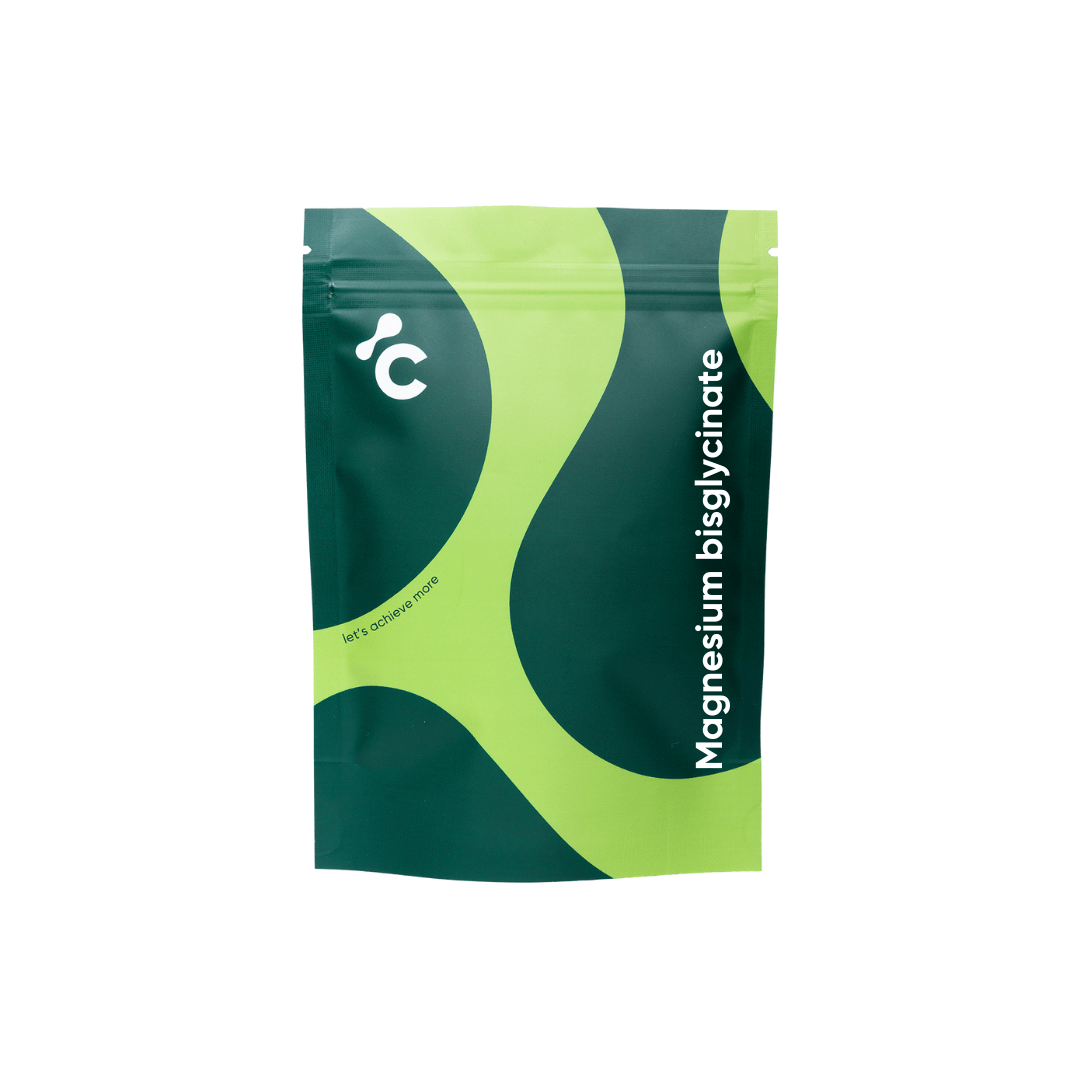Magnesium Glycinate and Melatonin: User’s Insights

Magnesium glycinate and melatonin are both popular supplements widely used for their potential benefits. As for which supplement is preferred, it tends to vary based on individual needs and responses. Some may find melatonin more directly helpful for sleep issues, while others might prefer magnesium glycinate for its broader range of benefits and gentler impact on the digestive system. The choice between the two often depends on specific personal health goals and how each individual’s body responds to the supplements. In this article, we’ll explore user experiences and opinions shared on popular discussion platforms Reddit and Quora regarding the use of magnesium glycinate and melatonin.
Table Of Contents
Article Methodology
It’s important to explain how we created this article. Here’s our approach to researching and gathering information for a user-focused, experience-based comparison of magnesium glycinate versus citrate:
- Emphasis on User Feedback: Our research is based on real user experiences. We reviewed numerous discussions and testimonials about personal experiences with magnesium glycinate and citrate to gather genuine, real-world data.
- Community Engagement: We explored various platforms where people discuss health supplements, including Reddit, Quora, and sites focused on nootropics. These sources provided a wide range of personal insights and experiences.
- No Scientific Claims: While we summarize user experiences, we do not claim scientific accuracy or endorse health claims. The personal stories shared are for informational purposes only and should not be taken as medical advice.
- Encouragement of Critical Thinking: We urge our readers to think critically about the content and not accept it at face value. It’s important to consult healthcare professionals before making any decisions based on the information shared.
- Source Transparency: We aim to be transparent by providing sources where possible, allowing readers to verify the information and explore the discussions further if they wish.
What is Magnesium Glycinate?
Magnesium Glycinate is a form of magnesium bonded to glycine, a calming amino acid. This form of magnesium is preferred for its superior absorption rates and its gentle effect on the stomach. People choose Magnesium Glycinate not only for its potential to improve sleep but also for its ability to reduce anxiety, promote muscle relaxation, and support overall nervous system health.
What is Melatonin?
Melatonin plays a crucial role in regulating the sleep-wake cycle. It is a hormone naturally produced by the pineal gland in response to darkness, helping to signal the body that it is time to sleep. As a supplement, Melatonin is commonly used to aid sleep during irregular hours, such as with shift work or jet lag. By mimicking the natural rhythm of the body’s melatonin production, it can help initiate sleep, making it a popular choice for those who have trouble winding down at night.
User Experiences with Magnesium Glycinate
Feedback on Magnesium Glycinate varies widely among users. Some individuals report significant improvements in sleep quality, while others find little to no effect. One of the users described their nightly routine involving 400mg of elemental magnesium, noting a significant enhancement in sleep quality and the ability to wake up naturally before their alarm. “ I take 400mg elemental magnesium (as 4400mg Magnesium Lysinate/Glycinate chelate) and 3mg Melatonin sublingual before bed every night. I have noticed much better sleep and even wake up on my own 8 hours later, often before my alarm.“ This account underscores the potential benefits of Magnesium Glycinate in fostering restful sleep.
Common patterns in user feedback include variations in dosage and timing of intake, with many preferring to consume the supplement in the evening to capitalise on its relaxing effects. However, it’s noted that while it aids in relaxation for some, it does not consistently induce sleep, indicating that its effectiveness may vary based on individual differences.
User Experiences with Melatonin
Melatonin generally receives positive feedback for its ability to reduce the time it takes to fall asleep. Users emphasise the importance of dosage, with one user sharing their success with a regimen that includes a low dose of melatonin combined with magnesium and zinc, which significantly improved their sleep without any residual grogginess the next day. One user explained their routine, saying, “I’ve been taking 100mg magnesium and 25mg of zinc about an hour before bed. Then I take around 1mg of melatonin and have had great results falling asleep and staying asleep throughout the night. Zero hangover effect as well.”
Feedback often includes practical tips, such as adjusting the timing of the dose to right before bedtime to avoid mid-night awakenings. Some users also report experiencing more vivid dreams and a slight grogginess in the morning, which can be mitigated by fine-tuning the dosage.
Combining Magnesium Glycinate with Melatonin
Many users discuss their experiences combining Magnesium Glycinate with Melatonin, often with positive outcomes. They report that this combination not only helps them fall asleep faster but also improves the quality of their sleep. For example, one user mentioned taking both supplements nightly without any issues, suggesting a synergistic effect that enhances the individual benefits of each. As one user puts it, “Same, take them both every night no problem,” suggesting that for some, this combination effectively enhances sleep without adverse effects.
However, the experiences are not uniformly positive. Some users find that while the combination may expedite sleep onset, it doesn’t always prevent waking up during the night or enhance the overall restfulness of sleep. Such mixed reviews highlight the variability in how individuals respond to supplements, emphasising the need for personalised approaches.
Overall, the discussions suggest that both Magnesium Glycinate and Melatonin can be effective for improving sleep, either alone or in combination, though effectiveness can vary. Starting with lower doses to assess personal tolerance and effectiveness is frequently advised, tailoring the approach to individual needs and responses.
Melatonin and Magnesium According to Dr. LeGrand
Dr. LeGrand explains the use of melatonin and magnesium glycinate for insomnia through two different case scenarios, emphasising their distinct roles in managing sleep issues:
- Case Scenario 1: In this scenario, a patient struggled with sleep onset, often unable to fall asleep until the early morning hours. This issue was exacerbated by her job, which required frequent travel across different time zones, disrupting her circadian rhythm. Dr. LeGrand identified that excessive screen time in the evening also hindered her natural production of melatonin. To address her sleep initiation problems, he prescribed melatonin to help reset her circadian rhythm. The treatment began with a low dose of 2 mg of melatonin, gradually increasing as needed to find the optimal dose that would allow her to fall asleep.
- Case Scenario 2: Another patient faced difficulties not only falling asleep but also staying asleep, accompanied by high anxiety and restless leg syndrome. After other sleep aids and medications failed, Dr. LeGrand considered a micronutrient deficiency as a potential underlying issue. Upon testing, it was found that the patient had low magnesium levels. To combat this, he prescribed two forms of magnesium: epsom salt baths for immediate absorption and relaxation effects, and magnesium citrate supplements to replenish his magnesium levels efficiently. This approach helped alleviate the patient’s restless leg syndrome and anxiety, significantly improving his sleep quality.
Dr. LeGrand emphasises that melatonin and magnesium address different aspects of sleep-related issues. Melatonin is useful for re-establishing a normal sleep-wake cycle, particularly beneficial for those whose natural melatonin production is compromised by lifestyle factors such as irregular sleep schedules and nighttime light exposure. On the other hand, magnesium is effective in addressing physical symptoms like muscle tension and neurological issues that contribute to maintenance insomnia.
In conclusion, Dr. LeGrand advises considering the root causes of insomnia when choosing a treatment approach. While melatonin is suited for resetting sleep cycles disrupted by external factors, magnesium is crucial for addressing internal physiological disturbances that impede restful sleep.
How People Combine Magnesium Glycinate with Melatonin?
- Typical Dosages and Timing: Melatonin’s typical doses range from 1mg to 3mg. It is usually taken about 30 minutes to one hour before bedtime to help synchronise with the body’s natural sleep-wake cycle. Magnesium Glycinate’s common doses are between 200mg and 400mg, often taken right at bedtime to benefit from its calming effect on the muscles and nervous system.
- Routine Examples: A common regimen includes 10mg of extended-release Melatonin combined with Magnesium Glycinate, zinc, and vitamin B6. Another user prefers 400mg of elemental magnesium paired with 3mg of Melatonin taken sublingually before sleep.
- Adjustments Based on Personal Experience: Starting with smaller doses is a common practice to determine individual effectiveness. Timing adjustments are made according to personal sleep habits, with some preferring to take their supplements earlier in the evening and others just before bed.
Potential Side Effects of Melatonin
According to Dr. Jen Caudle, a practising family physician and health expert, potential side effects of melatonin supplementation include:
- Headache: Some individuals may experience headaches as a potential side effect of melatonin supplementation.
- Excessive Sleepiness: While melatonin is intended to aid in falling asleep faster, some individuals may experience prolonged or excessive sleepiness, which can be considered a negative side effect.
- Dizziness: Dizziness is another potential side effect that individuals may experience when taking melatonin.
- Nausea: Some individuals may report experiencing nausea as a side effect of melatonin supplementation.
- Interactions with Medications: It’s essential to be aware that melatonin supplements can potentially interact with prescription medications, other vitamins, or supplements, which could lead to adverse effects. Therefore, consulting with a healthcare professional before starting melatonin supplementation is crucial.
It’s advisable to avoid operating heavy machinery within several hours of taking melatonin. Dr. Caudle also emphasises that melatonin may not work for everyone and recommends consulting with a doctor before trying it, especially considering individual health conditions and potential interactions. Melatonin supplements are available in different doses and formulations, including short-acting and long-acting versions. Understanding these variations and discussing them with a healthcare provider is essential before starting melatonin supplementation.
Disclaimer:
The information provided in this article is for informational purposes only and is not intended as a substitute for advice from your physician or other healthcare professional. Always consult with a healthcare professional before starting any new supplements or changing your health regimen, especially if you have or suspect you might have a health problem.
Sources:
https://www.quora.com/Will-taking-melatonin-with-magnesium-glycinate-have-any-adverse-effects
https://www.reddit.com/r/Supplements/comments/fm3ra9/experience_on_taking_magnesium_and_melatonin/





